|
|
|
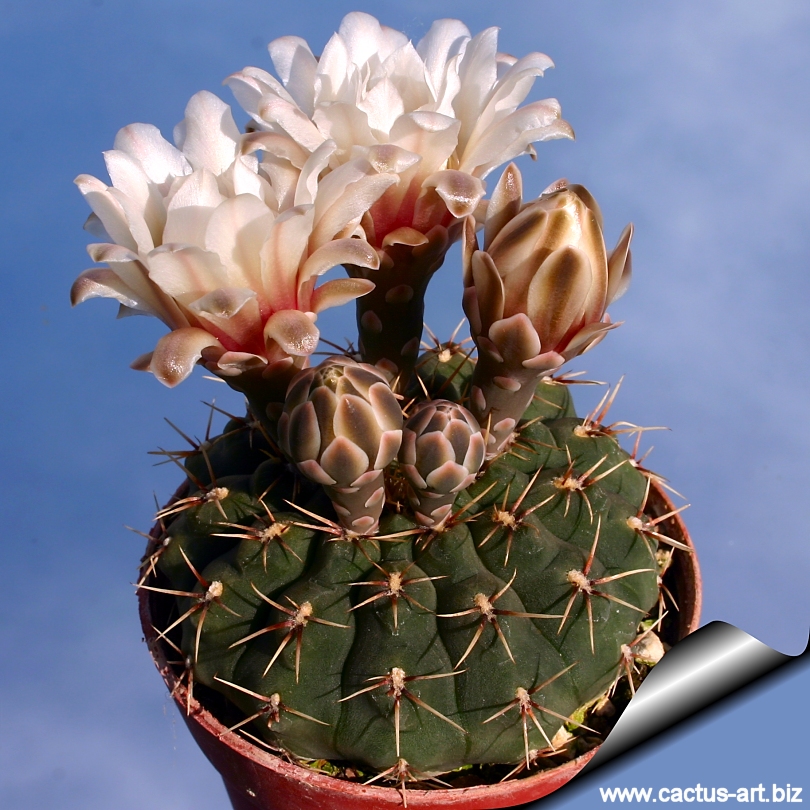
Extremely free flowering G. platense makes a splendid show.
This is a plant to be
suggested to all
cactophiles for its very eye-catching flowering
even at a very small size.
It flowers readily from an early age,
and offers no cultivation difficulties.
|
|
Description:
Small usually
unbranched,
Stem: Flat to
globose depressed, cm
in width, green, greyish-brown to blue-green
(rather variable in colour in cultivation
depending on growing conditions). 8-10 cm
high, 6-10 cm broad.
Ribs: 10-14 broad, divided by deep grooves into distinct rounded
tubercles.
Areoles : deep-set
Radial spines: 3
to 7 thin, needle like, straight or slightly
curved flattened against the stems surface pale brown-red or grey, with
whitish tips up to 1 cm long.
Central spines: Usually absent.
Flower: On
the crown, with long floral tube measuring
3 to 6 cm in length and up to 4 cm across, open wide
in sunlight, and
commonly white with a reddish reddish throat and a hint of dark shading
at the tips of the tepals.
Blooming season: This plant blooms in early summer when it is only 3-4
cm.
Fruit: The
ripened
ovary is green, long and
dehisces (splits) down its length.
|
|
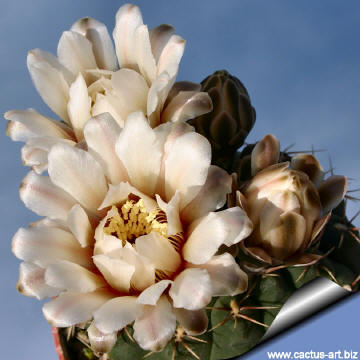 |
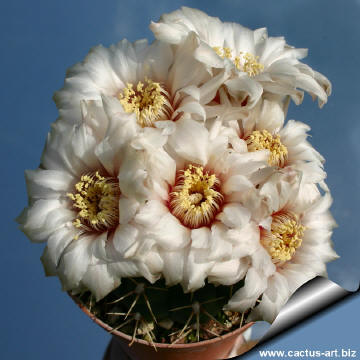 |
|
Gymnocalycium platense flowers when quite small, and it had a pristine
white flower with a reddish throat and a hint
of dark shading at the tips of the tepals. |
|
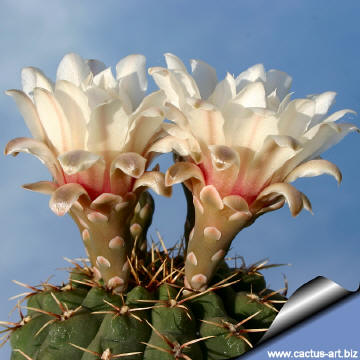 |
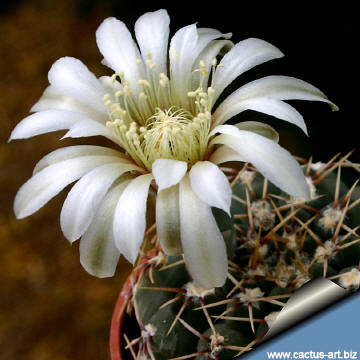 |
|
. |
|
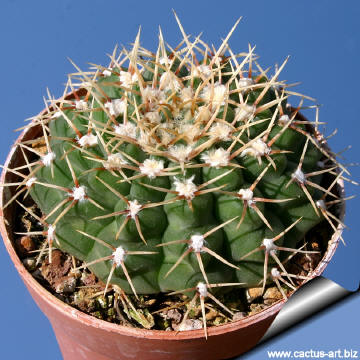 |
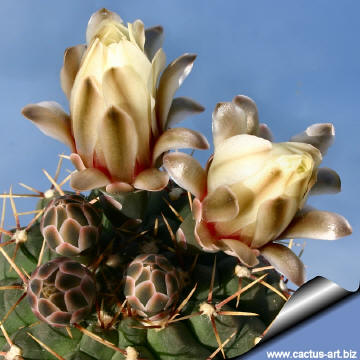 |
|
Advertising
|
|
|
|
|
Family:
Cactaceae (Cactus
Family)
Scientific Name:
Gymnocalycium platense
(Speg.) Britton & Rose var. platense
In:
Contr. fl. Sierra Vent. 1 28. 1896.
Distribution &
Habitat: Argentina (Córdoba
and Buenos Aires Province). This plant
comes from the arid hills of Pampas (Sierra de la Ventana, Curámalál,
Olavarria etc.) mainly in the cracks of the rocks. Altitude 300-700 m.
The original specimens was collected
in Prov. Buenos Aires, Ventana, Valle de las Vertientes in 1895 by
Spegazzini.
Conservation status: Listed in
CITES appendix 2.
Synonyms:
- Gymnocalycium gibbosus var. platensis
(Speg.) A. Castellanos & Lelong 1940
- Echinocactus platensis
This species is strictly relate with
G. stellatum and
G. baldianum and it is very similar (if not the same) to
G. quehlianum.
|
|
|
|
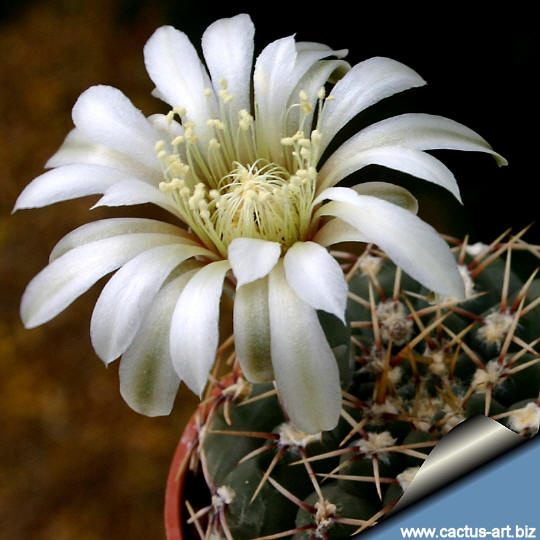
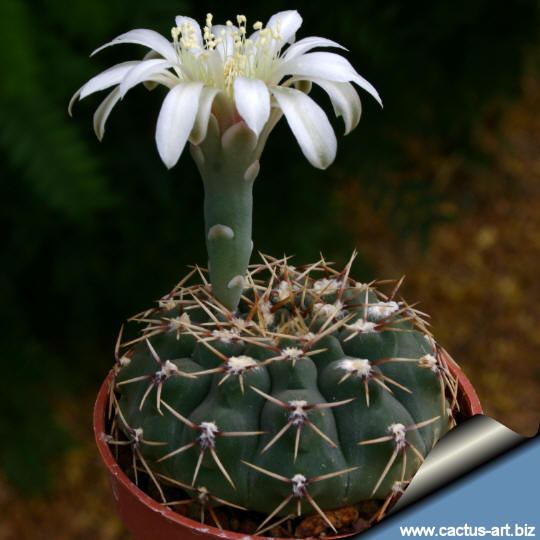
Cultivation: Very easy to grow, these plants offer no
cultivation difficulties. Watering Needs: Moderate to copious in summer,
keep dry in winter.
Frost Tolerance: Quite frost resistant if kept dry -10° C
(Temperature
Zone: USDA 8-10
)
Cultural
Practices: Feed
with a high potassium fertilizer in summer.
Sun Exposure:
Full sun to light shade
Propagation: Seeds (seldom produces offsets)
Photo of conspecific taxa, varieties, forms and
cultivars of plants belonging to the
Gymnocalycium gibbosum
complex
(This
Taxon
has lots of synonyms
(
like many other Gymnocalyciums)
whit several controversial varieties and subspecies and comprises a multitude of different forms, but where each form
is linked to others by populations of plants with intermediate
characteristics):


|
|